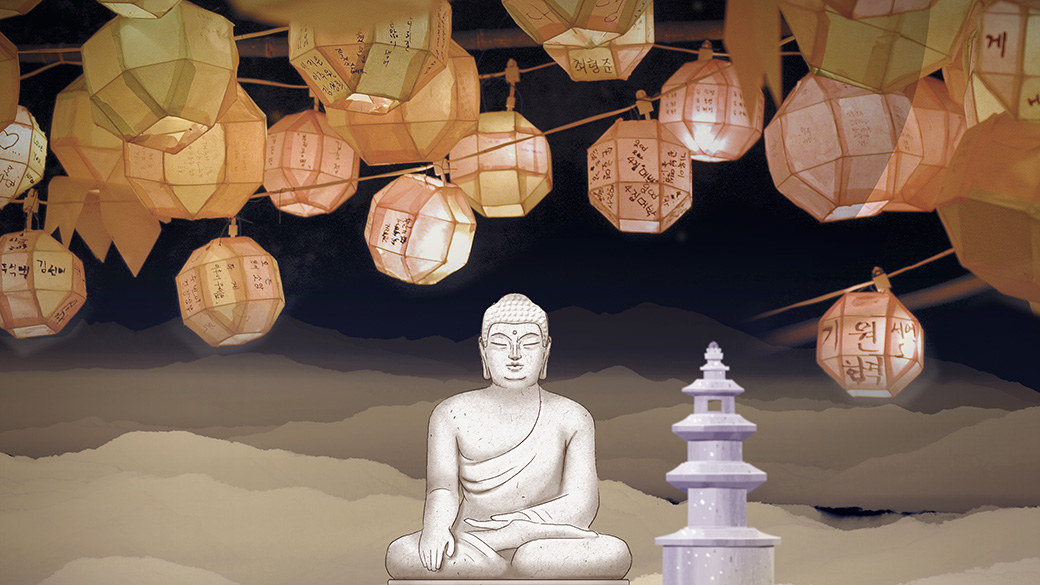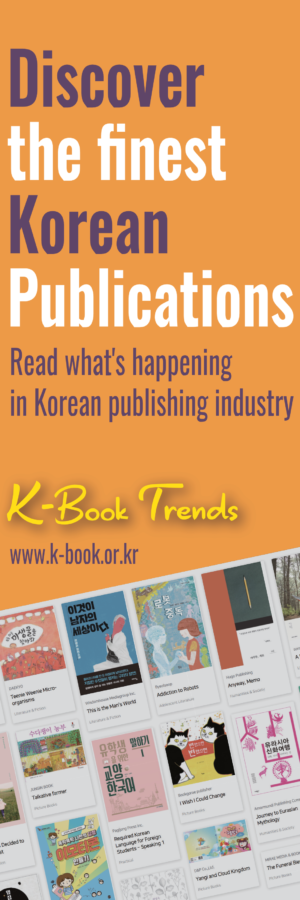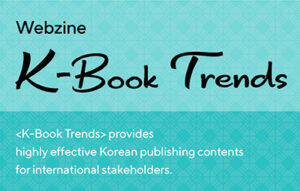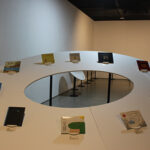Current status of each field in the Korean publishing market
③ Philosophical and Religious Publications
2020.04.06
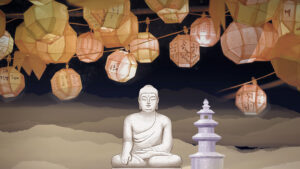 Religion was the origin of publishing in both the East and the West. The common ground of <42-line Gutenberg Bible (1455)> which is regarded as the beginning of modern publication and <Jikji: Anthology of Great Buddhist Priests’ Zen Teachings (1377)>, the world’s first Buddhist scripture made with movable metal types which predate the Bible, is that they are both religious books. It is possible to say that philosophical and religious publications are from the same source in that they both talk about the ongoing struggles of humanity – what is a human being and how should one live.
Religion was the origin of publishing in both the East and the West. The common ground of <42-line Gutenberg Bible (1455)> which is regarded as the beginning of modern publication and <Jikji: Anthology of Great Buddhist Priests’ Zen Teachings (1377)>, the world’s first Buddhist scripture made with movable metal types which predate the Bible, is that they are both religious books. It is possible to say that philosophical and religious publications are from the same source in that they both talk about the ongoing struggles of humanity – what is a human being and how should one live.
According to the statistics of the Korean Publishers Association, the number of titles published in Korea was 2,291 for philosophical books, while it was 2,958 for religious books in 2019. In terms of philosophical books, an average of 1,000 copies (1,232 copies in 2019) of around 2,000 titles are published annually, while 3,000 titles of religious books publish an average of 1,000 copies (1,050 in 2019) per year. In detail, psychology and ethics (moral philosophy) in the philosophy field accounted for more than 700 titles, taking two-thirds of the total published copies. Also, Christianity, Catholicism, and Judaism accounted for an overwhelming proportion of more than 80% (2,547 titles as of 2018), followed by Buddhism with more than 400 titles. Compared to its religious influence, Buddhism books have relatively less published copies.
According to Statistics Korea (based on Population and Housing Census in 2015), 43.9% of the Korean population (21.55 million) have a religion; 98% of them mostly consisted of Buddhists, Christians, and Catholics. Muslims and others have a minor religious influence in Korea. As not all the religious people enthusiastically purchase books, the proportion of religion does not always match the size of sales. Yet, the general trend is reflected in the publishing statistics. In particular, as Christians regard literary mission to be important, Christian publishers created the Korea Christian Publishers Association, while Christian bookstores have the Korea Christian Bookstores Association. Each of the associations has hundreds of member publishers and bookstores all active in publishing and sales. Even though Christian books are sold in general bookstores too, Christian bookstores sell more diverse types of religious books. Sermon collections of pastors are sometimes directly sold by churches as well. Meanwhile, in terms of Buddhism, there is the Buddhism Publishers Association consisting of publishers for Buddhism books.
It is possible to say that philosophical and religious publications are from the same source in that they both talk about the ongoing struggles of humanity – what is a human being and how should one live.
Last year, many of the popular books in the philosophy field were related to psychology and philosophy that people can easily relate to in daily life. In short, they were very close to self-development books. This kind of area is categorized as “humanities” in Korea. The book <How Philosophy Becomes a Weapon of Life (Dasan Books)> written by Yamaguchi Shu which ranked first in humanities was also read as a book for business. With the sub-title “50 thinking tools to break through an uncertain life,” this book features how one can strategically utilize the core ideas of major philosophers centering on people, organization, society, and ideology. The book <12 Rules for Life (Maven)> written by psychologist Jordan B. Peterson who was a professor of psychology at Harvard University and <The Courage To Be Disliked (Influential)> by a Japanese philosopher Kishimi Ichiro were loved by readers as well.
<You’re Right (Hainaim)> written by a Korean psychiatrist Jung Hye-Shin suggests a mental cure based on “sympathy” building on 30 plus years of consultations she has had with patients and <Self-Esteem Lesson (Simple Books)> written by Yoon Hong-Kyun also explains how one can boost self-esteem based on his years of clinical experience. Meanwhile, <On Ways of Living (Beautiful People Books)> by a former politician and an eloquent speaker Rhyu Si-Min and essay <It is good to think of death in the morning (Across)> by Kim Young-Min, a professor at Seoul National University offers advice to ordinary people on the best attitude for life. Even though “It is good to think of death in the morning” can make you feel uncomfortable, it is actually a variation on the idea that “it gives you hope to persevere through life as you’re already dead.”
One thing these books share is that by telling a story or “kindly talking to the readers,” people can be encouraged to overcome difficulties in life and regain confidence. While traditional philosophical books encompassing Korean, Eastern, and Western philosophies struggle selling all of their first circulations, popular books help readers to look at their life and its value with better eyes by guiding practical philosophy they can apply in daily life. Meanwhile, <Kludge (Galleon)>, <The Organized Mind (Wise Berry)>, and <The Laws of Human Nature (Wisdom House)> showed the whole new evolution of philosophical books by fusing psychology and brain science.
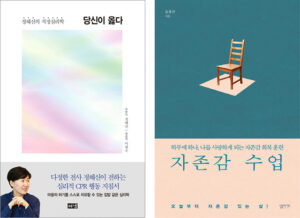
<You’re Right>, <Self-Esteem Lesson>
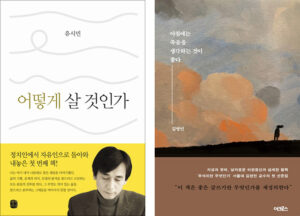
<On Ways of Living>, <It is good to think of death in the morning>
One thing these books share is that by telling a story or “kindly talking to the readers,” people can be encouraged to overcome difficulties in life and regain confidence.
The sales trend in religious books has been mainly determined by those written by popular religious people (influential pastor or monk). However, the book that ranked first in this field in 2019 was by two writers with the nickname “Sunshine Beans (Kim Nadan, Kim Yeon-Sun).” Meditation book <God’s Timing for Your Life (Kyujang)> and <God’s Letter for Your Life (42 Media Contents)> became bestsellers, and their new book <God’s Present for Your Life (Kyujang)> also hit the top sales list this year. This couple has been communicating with more than 100 thousand followers on their Social Media every day since 2015, which shows that the power of Social Media can be a greater influence on the field of religion. The trailer videos for books, phrases, calligraphy, and illustrations the couple wrote and made can be seen when you click the list on an online bookstore, and these ordinary, not-so-special contents show that the dynamism of Social Media does have a great influence on their popularity in the market.
The five best-selling books in religion include <The Meaning of Marriage (Duranno)> by Timothy Keller, a former pastor at Redeemer Presbyterian Church in the US and <True Happiness (NamuMind)>, <Words of Wisdom for Newlyweds (Hyu, 休; Hanibook)>, and <Lessons for Life (Hyu, 休; Hanibook)> by the Venerable Pomnyun which have been steady sellers for a long time. Entering this year, the posthumous collection <The Most Reverend Monk Jeokmyeong (Bulkwang Media)> by the Most Reverend Monk Jeokmyeong of Bongamsa Temple received highlight among Buddhism books. Also, <The 5 Love Languages (Life Book)> by Gary Chapman, <153 Thanks Note (Kyujang)> by Lee Chan-Soo, <One Hour Prayer (Kyujang)> by Yoo Ki-Sung, a great Christian book in the 20th century <Mere Christianity (Hongsungsa)> by Clive Staples Lewis who is a former professor of English literature at Oxford University, 3 series (including hardcover and complete translation) of <Pigrlim’s Progress (Poiema)>, a classic by John Bunyan, are keeping their popularity among readers. A book based on long years of theology research, <I am Jesus (Tongnamu)> by Kim Yong-Ok, who has celebrity-like popularity in Korea, is currently topping the list.
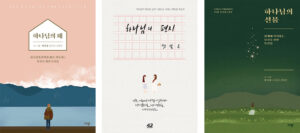
<God’s Timing for Your Life>, <God’s Letter for Your Life>, <God’s Present for Your Life>
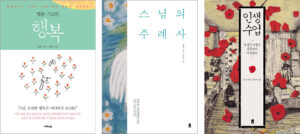
<True Happiness>, <Words of Wisdom for Newlyweds>, <Lessons for Life>
Regarding philosophical books, Seokwangsa (established in 1974) is the unrivaled publisher. It has been adhering to publishing philosophical books including Eastern and Western philosophy and religion. Also, Dongnyok (established in 1982) is a humanities and social science publisher that published milestone philosophical books every 10 years beginning with the popular <An Essay of Philosophy (1983)> to <An Essay of East Asian Philosophy (1993)> and <An Essay of Korean Philosophy (2003)>, etc. Meanwhile, Tongnamu (established in 1986) focused on publishing books related to oriental studies, which in particular concentrated on the books of Kim Yong-Ok. Ehak Publishing Co. (established in 1996) is also a specialized publisher in philosophy, aesthetics, and religion. Plus, not only EjB that published <Plato: Complete Work> but also Hangilsa, Chaeksesang, Greenbee, Gil, and Acanet are publishers that have been publishing Western philosophical books in a significant amount.
Both religious publishers and general publishers produce religious books in Korea. Regarding Buddhism, Bulkwang Media (established in 1974) is the flagship publisher which began with <Monthly Bulkwang>, a Buddhism journal. Hanibook, an affiliate of Hankyoreh sold a total of more than 500 thousand copies of 3 titles written by a psychological mentor, the Venerable Pomnyun through its publishing brand “Hyu (休).”
Established in 1888, the Catholic Publishing House is the oldest publisher in Korea run by the Catholic Church. Bundo Book (Bundo means “Benedictus”; established in 1962) and Pauline Books & Media (established in 1962) are famous Catholic publishers. Life Book (established in 1953), a Christian publisher, has been steadily producing approximately 3,000 titles of Christian books, while Kyujang (established in 1978) has published 1,400 titles as a specialized publisher for separate volumes. Duranno (established in 1980) is the cradle of best-selling Christian books. Hongsungsa (established in 1974) had been famous for humanities and social books, but from the 1980s, it has been concentrating on Christian publication, publishing 900 types of books for professionals. Agape and Qumran Publishing Co. also have a high reputation as specialized Christian publishers.
Written by Baek Won-Keun (Books & Society Research Institute, President)
